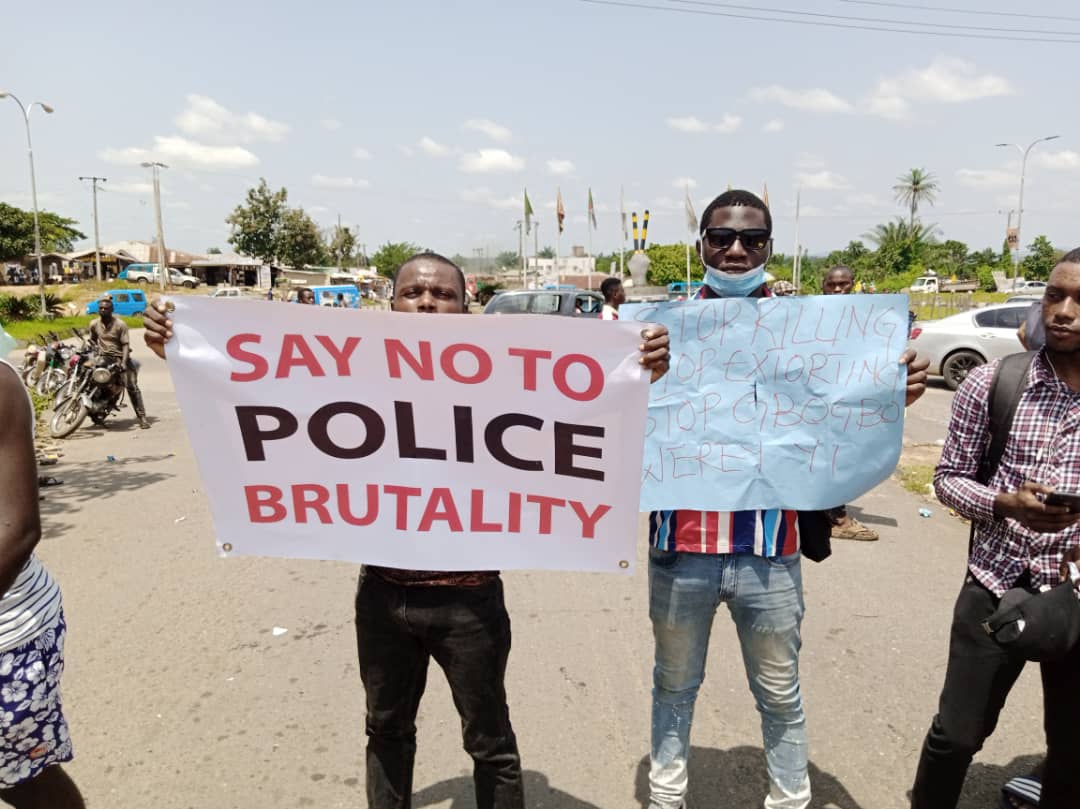True, there are rogues among the police, as there are in every segment of society. All over the world, the police are under pressure – for being particularly more brutal in handling some ‘types’ of people (black people in the US, youths in Nigeria, Muslims in others, for example). Be that as it may, we all need the police; the elite, the poor, the elderly, the youths – despite their apparent unfair treatment of many. Without policing, it would the proverbial anarchy unleashed upon the world.
- Insecurity: Don’t Leave Calabar, Ayade Begs WAEC
- U.S Election: I Won But I’ll Go To Supreme Court – Trump
Earlier this year, and long before #ENDSARS, former Kano State Governor and now Senator Ibrahim Shekarau spoke to his colleagues on the Senate Ad-Hoc Committee on Security and Intelligence on ways forward for policing in Nigeria, an address he titled SIX-POINT AGENDA FOR NIGERIAN POLICING. This Columnist was privy to the statement, the Part 1 of which is presented here:
According to accepted discourse, the need for police arose when societies became complex and needed a security system to deal with internal civilian disorder while leaving the military to deal with external aggression. From that point to date, the police have the mandate of maintaining law and order as well as intervening in situations considered dangerous for non-trained civilians.
The current security situation in the country is so serious as to be ‘calamitous’. The greatest manifestation of this calamity is the taking over of many federal highways by criminals. In the quest to re-energise the Nigeria Police to return to its glorious days as guardians of our internal national security, permit me to present a six-point agenda: Recruitment; Training; Equipment; Welfare; Pension; and Funding.
RECRUITMENT (OR NUMBERS): A recent analysis by the United Nations indicates an approximate median of 300 police officers per 100,000 inhabitants, or averagely one officer per 333 inhabitants (www.wikipedia.org). For example, there were 326 police officers per 100,000 in the European Union in 2017, an average of one officer per 307 citizens – not too far from the global average of 1:333 (www.ec.europa.eu).
According to Mark Owuor Otieno, a Kenyan (writing on www.worldatlas.com), though there is no written or recommended ratio because societies differ in levels of crime, however, it is necessary for jurisdictions to have a good balance of police per given population so as not to strain the police service or leave citizens unprotected. Highly volatile societies definitely need more policemen than the relatively peaceful ones.
In Nigeria, with its about 360,000 officers policing an estimated population of 200 million, the per capita ratio is about one officer per 556 inhabitants, almost double what obtains in the EU (with its minimal crime and minimal gun ownership among other factors).
Compare our numbers to South Africa, our African sister with almost equal economy and equal security challenges: according to South African Police Service, SAPS (quoted at www.businesstech.co.za) there were 193,000 police officer as at July 23, 2019 with plans to recruit 14,000 more over the next three years. With South Africa’s population estimated at 57,000,000, the police per capita is one officer per 295 citizens or 1:295 (cf. NIGERIA = 1:556, almost double). If we were to factor in the number of personnel not on real active policing duties in Nigeria (and that is a big number), the average will be much more negative.
Worse, about 6,000 police officers retire annually – most of them well-trained and highly experienced. The current rate of new annual recruitment into the police is 10,000 (and even that always marred with controversies). Therefore, if 6,000 retire and we recruit 10,000, net recruitment is 4,000. When one contrasts this to our population growth, one would find this as not good enough.
Again, worthy of note is that the 10,000 new annual recruits are really ‘recruits’. The few officer-recruitments among them lack an important ingredient of policing – experience – and that is what those annual 6,000 retirees have gone away with. Therefore, in summary, whatever funding, equipment, training, etc, you give the police, as long as their numbers are inadequate, contrasted with a growing population and growing crime, we shall continue to be under-policed. Our country must therefore have a long-term strategy (of, say, 20 to 30 years) to plan on how to balance out the police numbers commensurate to our population growth so as to be at least on replacement level.
TRAINING: The major component of efficiency in any profession is training. No one can be an expert in any trade without going through recommended apprenticeship with the professionals. A carpenter’s son, a teacher’s son, a cleric’s son cannot just grow up and follow their parents’ professional footsteps unless they are trained.
Not too long ago, a section of the media focussed attention on the sorry and dismal state at our police training colleges. Everything was dilapidated. It was grossly inadequate to even live, let alone train, in such ramshackle premises. It was an embarrassing sight, to say the least. That media exposure made the police to scramble to make amends. Why did we have to wait until that media exposure to do the right thing?
According to a retired senior police officer (with whom I personally discussed this), during their time in the 1960s and 1970s (and even into the 1980s) there were regular trainings – no police officer would be left untrained at least every six months.
Without training, there would be no experience. True, one can pick experience on the beat and over time, but training gives the police officer the theoretical background of that ‘experience’ he may claim to have; it will ground him in the philosophy of his work; he would learn international best practices; etc.
Furthermore, the only reason why we have so many avoidable incidents of unintended fatal shootings (known in Nigeria as ‘accidental discharge) is the lack of adequate training on handling firearms. It is only training, for example, that will provide police officers the knowledge of assessment of situations –when to use batons only, when to use firearms starting from hot water, followed by teargas, followed by rubber or blank bullets, then followed by live bullets in the most serious of situations. Using live bullets on un-armed protesters at the first encounter (an action which gives our country such a bad reputation in the international community), is the most glaring example of lack of training, if ever there was one.

 Join Daily Trust WhatsApp Community For Quick Access To News and Happenings Around You.
Join Daily Trust WhatsApp Community For Quick Access To News and Happenings Around You.


